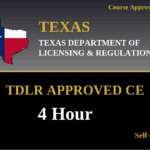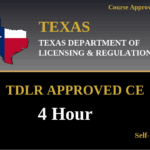
How to Get a Texas Electrical License: TDLR Guide for 2024
Whether you’re just starting as an apprentice or aiming for the highest level of certification, the journey is a structured one, built on a foundation of experience and verified knowledge. From Houston’s sprawling industrial complexes to new residential developments in the Dallas-Fort Worth metroplex, a TDLR electrician license ensures you are qualified, compliant, and ready to work safely. This guide will break down the different license types, their requirements, and the steps you need to take to build a successful career in the Texas electrical industry.
Understanding the Path: From Apprentice to Master Electrician
In Texas, the electrician career path is a ladder, with each rung representing a new level of expertise, responsibility, and opportunity. The TDLR has established clear tiers, ensuring that electricians build a solid foundation of hands-on experience before advancing. This structured approach protects both the public and the electricians themselves. The primary license types include the Electrical Apprentice, Residential Wireman, Journeyman Electrician, and Master Electrician. Each has distinct requirements for on-the-job training hours, examinations, and scope of work.
Starting Your Career: The Electrical Apprentice License
The first step for any aspiring electrician in Texas is to obtain an electrical apprentice license. This entry-level license allows you to legally work and learn under the direct supervision of a licensed Journeyman or Master Electrician.
- Requirements: You must be at least 16 years old to apply. There are no exam or experience prerequisites for this initial license.
- Application Fee: The application fee is $20.
- Role: As an apprentice, your primary goal is to accumulate the necessary on-the-job training hours that will qualify you for the next level of licensure.
Choosing Your Journeyman-Level Path
After gaining significant field experience, apprentices can choose between two main paths: specializing in residential work or pursuing a broader journeyman license. The choice depends on your career goals.
The Residential Wireman License
For those who want to focus exclusively on home electrical systems, the residential wireman license is the ideal choice. This license authorizes you to perform electrical work in specific types of residential dwellings.
- Experience: 4,000 hours of on-the-job training under a Master Electrician or Residential Wireman.
- Exam: You must pass the PSI exam for Residential Wireman. The exam fee is $78.
- Scope: Your work is limited to electrical installations in single-family dwellings and multi-family dwellings not exceeding three stories.
- Application Fee: The application fee is $30.
The Journeyman Electrician License
The journeyman electrician license offers a wider range of work opportunities, including residential, commercial, and industrial settings, all under the general supervision of a Master Electrician. This is the most common goal for apprentices.
- Experience: 8,000 hours of on-the-job training under a Master Electrician.
- Exam: You must pass the Journeyman electrician exam administered by PSI. The exam fee is $78.
- Application Fee: The initial application fee is $35.
Reaching the Peak: The Master Electrician License
The pinnacle of the electrical trade in Texas is the Master electrician license. This license grants you the authority to plan, design, and install all types of electrical work and supervise other electricians.
- Experience: To qualify, you must have held a Journeyman Electrician license for at least two years and have at least 12,000 hours of on-the-job training under the supervision of a licensed Master Electrician.
- Exam: Passing the Master Electrician PSI exam is required. The exam fee is $100.
- Application Fee: The application fee is $45.
Running the Business: The Texas Electrical Contractor License
If your goal is to own and operate an electrical business, you must obtain a Texas electrical contractor license. This license is for the business entity itself, not an individual. To qualify, the business must either be owned by or employ a licensed Master Electrician who will act as the master of record. Additionally, contractors must carry specific liability insurance coverage. The application fee for this license is $115.
Critical Steps for Licensure: Exams and Experience Verification
Passing the PSI Exam
For the Residential Wireman, Journeyman, and Master licenses, passing the state-mandated exam administered by PSI is a critical step. These exams are open-book, allowing you to bring in the latest TDLR-adopted edition of the National Electrical Code (NEC). A deep understanding of the NEC is essential for success. Familiarity with recent updates, such as how definition changes impact work, new labeling requirements, and provisions that improve worker safety, can be crucial. A score of 70% or better is generally required to pass.
Documenting Your On-the-Job Training Hours
Accurately documenting your work experience is non-negotiable. For each period of employment, you must have your supervising Master Electrician (or Residential Wireman, where applicable) complete an Experience Verification Form (Form ELC017). This form is a mandatory part of your application and serves as official proof of your accumulated hours. It is vital to keep detailed records and maintain good relationships with your supervisors to ensure a smooth application process.
Maintaining Your License: Renewal and Continuing Education
Once licensed, maintaining your status requires annual electrical license renewal. All Texas electrical licenses, from apprentice to master, must be renewed every year. For Journeyman, Master, Residential Wireman, and other advanced licenses, a key part of the renewal process is completing 4 hours of continuing education for electricians.
These hours must be from a TDLR-approved provider and must cover specific topics: the National Electrical Code (NEC), Texas state laws and rules, and electrical safety based on NFPA 70E. In lieu of the 4-hour course, electrical apprentices can meet their renewal requirement by being enrolled in a department-registered apprenticeship training program. Many professionals choose convenient online electrical courses to fulfill this annual requirement. To ensure compliance for your next Texas electrical license renewal, you can browse TDLR-approved courses to find a program that fits your schedule.
Expanding Your Horizons: Texas Electrical License Reciprocity
For electricians moving to Texas, the state offers electrical license reciprocity with several other states. This allows qualified electricians to transfer their license without starting from scratch. For a Journeyman license, Texas has agreements with states like Arkansas, Idaho, Montana, and Wyoming, among others. For a Master license, reciprocity exists with Louisiana, North Carolina, and Oklahoma. Applicants must still prove they meet Texas’s minimum requirements, have held their previous license for at least a year, and may need to pass an exam.
Frequently Asked Questions (FAQ)
- What are the basic Texas electrical license requirements?
- The requirements vary by license type but generally involve a specific number of on-the-job training hours (4,000 for Residential Wireman, 8,000 for Journeyman, 12,000 for Master), passing a state exam, and submitting an application with a fee to the TDLR.
- How long does electrician school take?
- While formal electrician school or a vocational program can provide foundational knowledge, Texas licensing is primarily based on documented on-the-job training hours, which take several years to accumulate.
- Can I get my Texas electrical license online?
- You cannot obtain your initial license entirely online, as it requires verified on-the-job experience and a proctored exam. However, for license renewals that require it (like Journeyman and Master), you must complete your annual 4-hour continuing education requirement, which can be done through approved online electrical courses. Apprentices are not required to take this 4-hour course if they are enrolled in a TDLR-registered apprenticeship program.
Texas Continuing Education Courses
Explore our board-approved continuing education courses for Texas professionals:
View CE RequirementsTexas 2023 NEC changes (Part 1), Texas Safety & Laws
Texas 2023 NEC changes (Part 2), Texas Safety & Laws
Texas 2023 NEC changes (Part 3), Texas Safety & Laws
Protected: Oklahoma: NEC 2023 Topics – Wiring Methods, Theory and Calculations
Disclaimer: The information provided in this educational content has been prepared with care to reflect current regulatory requirements for continuing education. However, licensing rules and regulations can vary by state and are subject to change. While we strive for accuracy, ExpertCE cannot guarantee that all details are complete or up to date at the time of reading. For the most current and authoritative information, always refer directly to your state’s official licensing board or regulatory agency.
NEC®, NFPA 70E®, NFPA 70®, and National Electrical Code® are registered trademarks of the National Fire Protection Association® (NFPA®)









